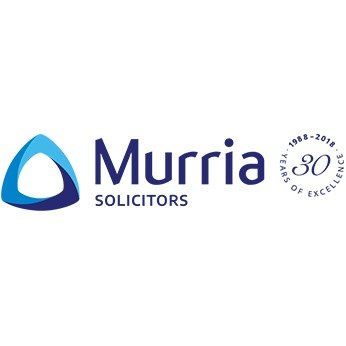Best ADR Mediation & Arbitration Lawyers in Birmingham
Share your needs with us, get contacted by law firms.
Free. Takes 2 min.
List of the best lawyers in Birmingham, United Kingdom
About ADR Mediation & Arbitration Law in Birmingham, United Kingdom
ADR Mediation and Arbitration are important forms of Alternative Dispute Resolution (ADR) in Birmingham, United Kingdom. These methods are commonly used to resolve conflicts without having to go through the often lengthy and pricey court process. While mediation involves a neutral third party guiding two disputing parties towards a settlement, arbitration involves an arbitrator making a final decision on the dispute based on evidence and arguments presented by the parties.
Why You May Need a Lawyer
In ADR Mediation & Arbitration, you may need a lawyer to guide you through the process and ensure your interests are well-represented. Such instances may include business disputes, family disagreements, real estate issues or employment disputes. A professional arbitrator or mediator can accurately interpret the laws and regulations, and give you the best possible direction and strategy for your specific circumstances.
Local Laws Overview
ADR Mediation & Arbitration in Birmingham operates under the UK Arbitration Act of 1996 and The Mediation Law, with the latter being a relatively recent development in the jurisprudence. This Act ensures the fair and just resolution of disputes by an arbitrator, while Mediation Law focuses on managing the mediation process and protecting the rights of all involved parties. Confidentiality and neutrality are heavily emphasized in these proceedings.
Frequently Asked Questions
1. Do I have to accept the decision made in ADR Mediation & Arbitration?
For arbitration, the answer is typically yes. The decision made in an arbitration process is legally binding and enforceable by courts. Mediation, however, depends on mutual agreement and the decisions are not binding unless both parties agree to the terms and include them in a formal legal agreement.
2. What is the benefit of ADR Mediation & Arbitration over conventional court proceedings?
ADR Mediation & Arbitration are typically quicker, less formal and can be less stressful compared to court cases. They also offer greater privacy and confidentiality. Additionally, the parties have more control over the resolution process and can often maintain better relationships post-dispute.
3. How long does the process of ADR Mediation & Arbitration take?
The length of these processes usually depends on the complexity of the dispute. Mediation may last a few hours or several days, whereas Arbitration can take a couple of months.
4. Is there a definite timeline for initiating ADR Mediation & Arbitration?
There isn't a standardised time limit, but it is generally advisable to initiate ADR processes promptly in order to facilitate resolution and avoid further escalation of conflicts.
5. How are mediators and arbitrators chosen?
Mediators and arbitrators should be neutral parties agreed upon by both disputing sides. It is crucial to ensure they have appropriate qualifications and experience in your particular dispute area.
Additional Resources
The Chartered Institute of Arbitrators and Civil Mediation Council are two of the many UK organizations that offer comprehensive guidance and resources related to ADR. For local assistance, you can reach out to Birmingham Law Society, which maintains a list of experienced mediators and arbitrators in the area.
Next Steps
If you require legal assistance in ADR Mediation & Arbitration, consider contacting a solicitor with expertise in this field. They can assess your situation, provide legal advice, and guide you through the ADR process efficiently. Ensure to prepare and have on hand all the necessary documents related to your dispute to expedite the proceedings.
Lawzana helps you find the best lawyers and law firms in Birmingham through a curated and pre-screened list of qualified legal professionals. Our platform offers rankings and detailed profiles of attorneys and law firms, allowing you to compare based on practice areas, including ADR Mediation & Arbitration , experience, and client feedback.
Each profile includes a description of the firm's areas of practice, client reviews, team members and partners, year of establishment, spoken languages, office locations, contact information, social media presence, and any published articles or resources. Most firms on our platform speak English and are experienced in both local and international legal matters.
Get a quote from top-rated law firms in Birmingham, United Kingdom — quickly, securely, and without unnecessary hassle.
Disclaimer:
The information provided on this page is for general informational purposes only and does not constitute legal advice. While we strive to ensure the accuracy and relevance of the content, legal information may change over time, and interpretations of the law can vary. You should always consult with a qualified legal professional for advice specific to your situation.
We disclaim all liability for actions taken or not taken based on the content of this page. If you believe any information is incorrect or outdated, please contact us, and we will review and update it where appropriate.













